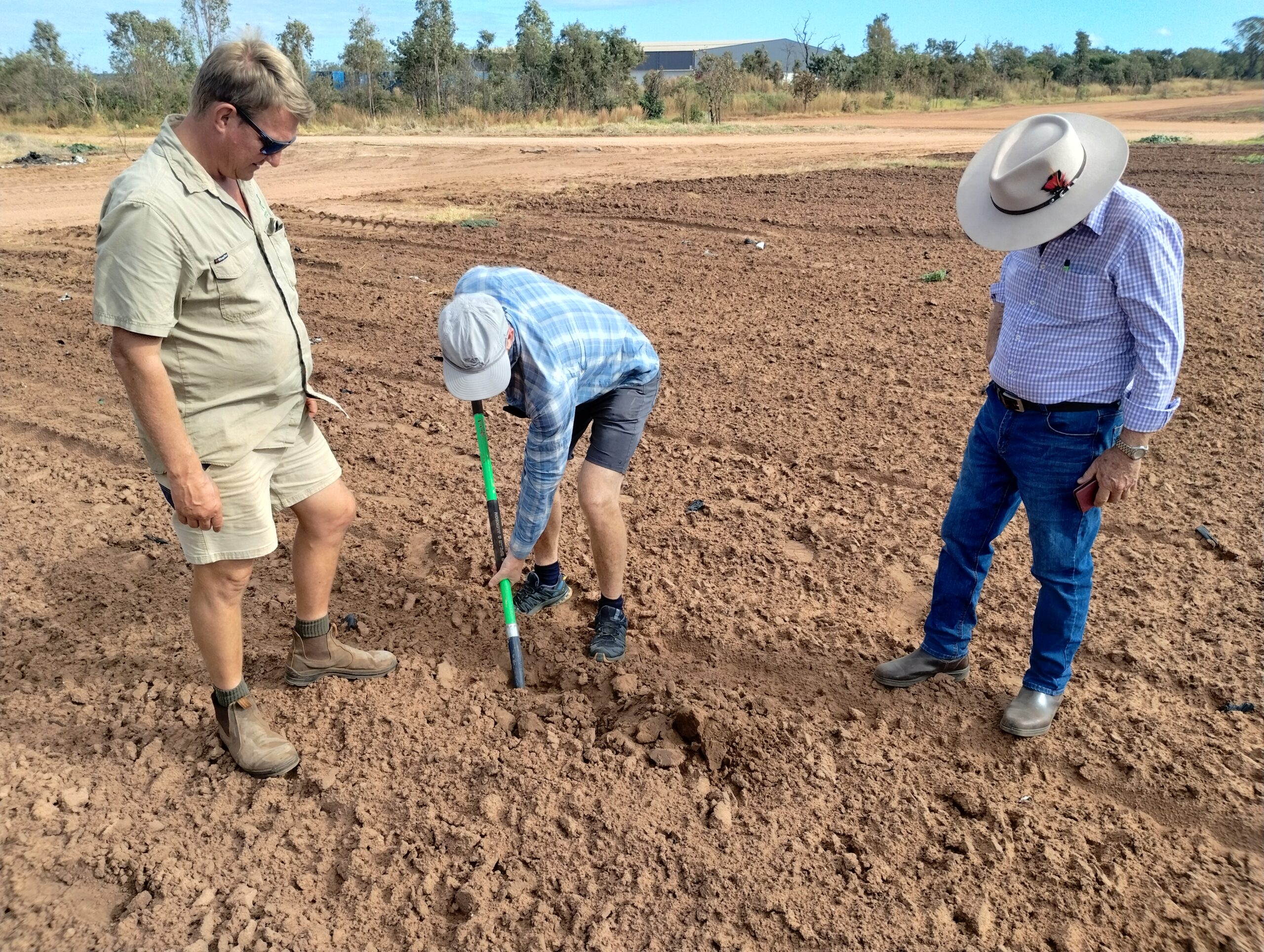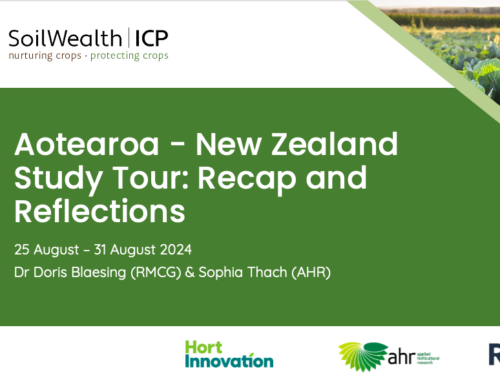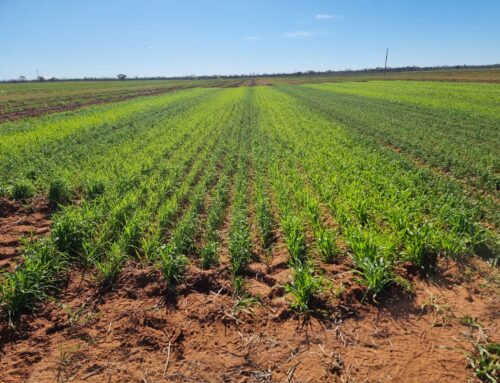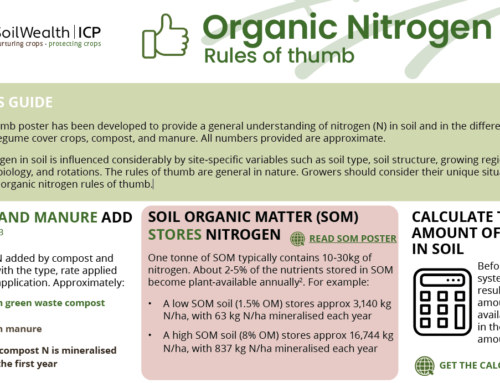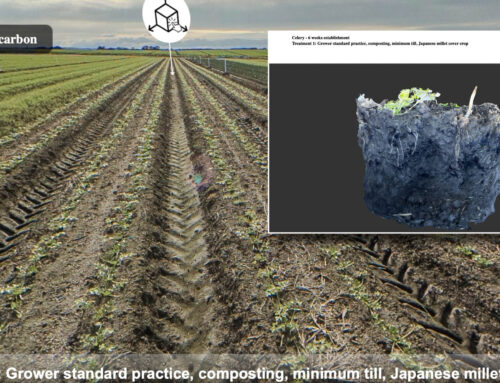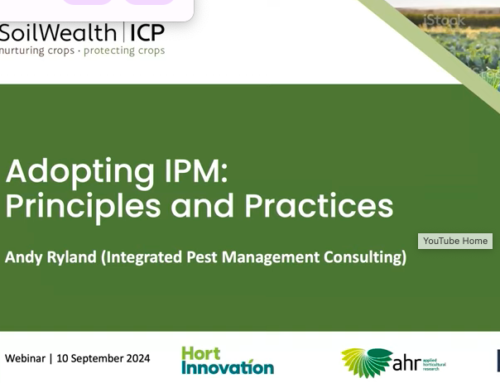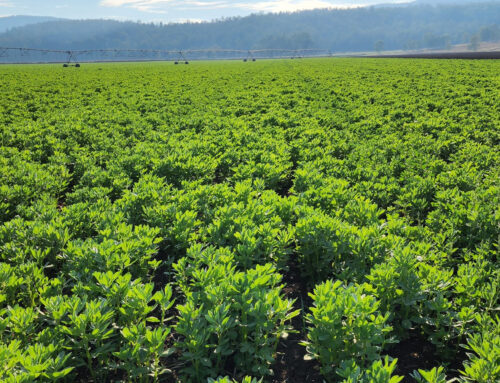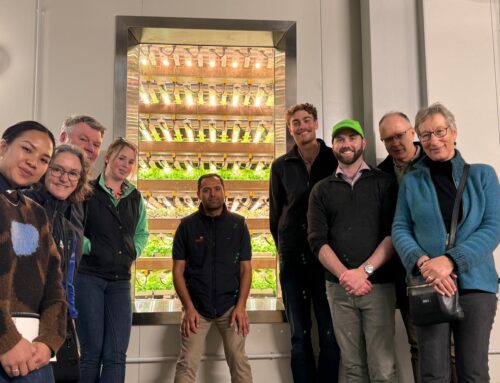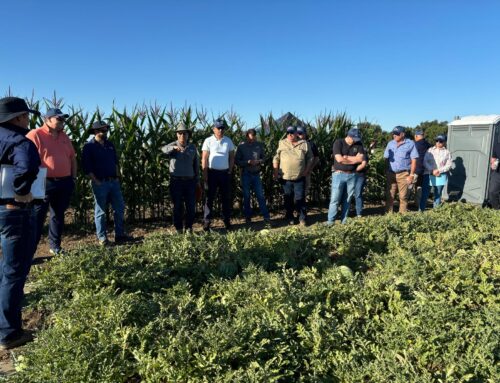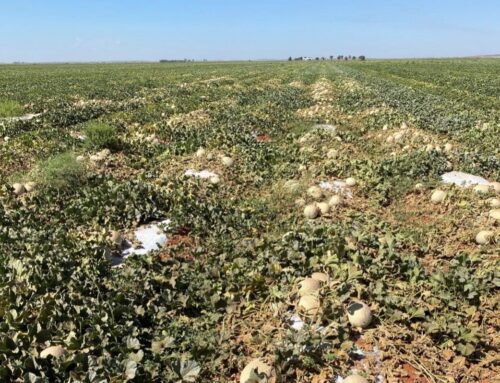Farming in tropical climates presents a unique set of challenges, especially when dealing with sandy soils. These soils, likened to an open hydroponic system due to the water and nutrient management strategies they require, pose significant challenges for growers.
A melon farm in the Northern Territory is exploring sustainable solutions to improve soil structure, and water and nutrient management in their melon crops through an innovative partnership with the Soil Wealth ICP project.
Sandy soils and a tropical climate make maintaining and increasing soil organic matter difficult; typical soil organic matter levels are under 1%. This makes water and nutrient management complicated. As the soil holds them poorly, water and nutrients could leach through the sand rapidly.
Mechanical tillage, currently employed to control weeds and fungal diseases, accelerates the breakdown of organic matter and of any soil structure that might have formed while the millet cover crops were grown over the wet season.
The demonstration site
The Northern Territory demonstration site will examine the use of compost and cover crops to increase soil organic matter (SOM) and improve soil structure, with the aim of improving the efficiency of water and nutrient management.
The Soil Wealth ICP team visited the site on 4 May 2024, to examine the paddocks and the soils, and talk to the growers to have a better understanding of the current situation.
“It’s important to focus on the functions of soil organic matter and its influence on biology, soil structure and retention of water and nutrients, rather than merely trying to bring up a number on the soil analysis,” Soil Wealth ICP team member Dr Kelvin Montagu said.
The primary objectives of the trials include:
- To determine how quickly organic matter breaks down in sandy soils in a tropical environment.
- To evaluate if compost can help stabilise organic matter in these conditions.
- To measure any improvements in water retention.
The trial includes three treatments which will be set up prior to the 2024-25 wet season:
- Treatment 1 – Extra organic matter and rest: Compost (3t/ha) banded into the soil and a millet cover crop with residues left on the soil after termination, and no melons planted over the dry season. Prior to the following wet season, the banding of compost and the sowing of millet will be repeated. Melons will be planted again in the following dry season. This treatment seeks to determine the impact of compost, cover crops, and rest on the productivity of the soil.
- Treatment 2 – Extra organic matter: Compost (3t/ha) banded into the soil and a millet cover crop to be worked into the soil, plastic laid down and melons planted. This treatment seeks to understand the immediate effects of compost on melon crops.
- Grower practice: The millet cover crop worked into the soil, plastic laid down, and melons planted. This approach will compare the new methods against traditional practices.
Additional observations
The trial will also monitor the impact of these treatments on the soil microbiological communities. Incorporation of organic matter favours bacterial growth, while leaving residues on the soil surface favours fungal growth. However, a reduction in tillage might complicate the management of Fusarium, a fungal disease. The project will assess if reducing tillage and adding organic matter also affects Fusarium incidence, thereby potentially requiring new disease management strategies.
The Soil Wealth ICP team is grateful to the demonstration site owners and their staff for collaborating with the project and agreeing to host demonstration sites on their farms, both in Mataranka, NT and Griffith, NSW.
Find out more
For more information, please contact project leader Umberto Calvo on 0448 189 847/ [email protected] from Applied Horticultural Research.
This article was first published in ‘Melon News’ Vol 1, 2024

